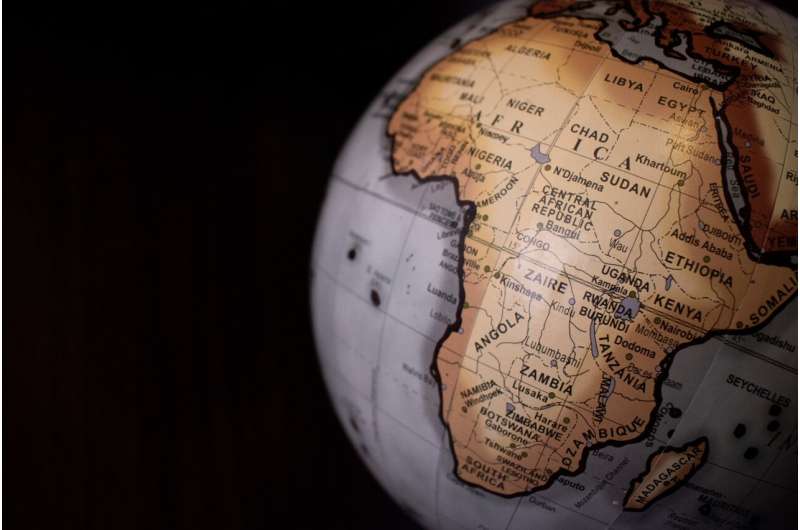Report reveals Western views of Africa are based on stereotypes of poverty, corruption and nature

Lisa Lock
scientific editor

Andrew Zinin
lead editor

A new report by a University of Bath psychologist has revealed that everyday perceptions of Africa in the U.K. and the U.S. are still largely shaped by outdated and negative stereotypes—with profound consequences for how people engage with the continent culturally and economically.
Titled Stereotypes About Africa in Britain and the United States: A Social-Psychological Study of Their Impact on Engagement with Africa, the is a collaboration between the non-profit organization Africa No Filter and Dr. Adam Hahn, a senior lecturer in the Department of Psychology, in collaboration with researchers from the United States and Germany.
It surveyed 1,126 participants in the U.K. and the U.S. to explore how people think about Africa and how interested they are in engaging with it. Specifically, study participants were asked to write down three thoughts that came to mind when thinking about either Africa or continental Europe, as well as to rate their interest in both continents' products and cultures. An additional 863 U.S. participants were surveyed to examine how negative views might be reshaped through positive narratives.
Notably, more than half (57.9%) of the responses about Africa mentioned wildlife or nature, with many describing the continent as hot, dangerous, or uninhabitable. In contrast, Europe was associated with modernity, architecture, and pleasant landscapes. Africa's society and economy were linked to corruption, instability, and poverty, while Europe was seen as stable and prosperous.
Furthermore, stereotypes linking Africa to political instability and poverty instead of culture and modernity were found to directly explain respondents' reduced interest in African goods and cultural experiences.
Dr. Adam Hahn said, "This report shows that Africa still exists as an abstract concept for many—one that is defined more by animals and hardship than by people, progress, or potential.. It's not just what people think, it's how their thoughts shape what they do—including their willingness to buy African products or engage with African cultures.
"Many actors in the developmental aid and charity sectors seem to actively perpetuate stereotypes about Africa, in all likelihood to increase aid and donations. This report adds to the base of evidence suggesting that this approach may have a net negative effect, reducing actual trade and engagement with people, firms, and organizations in Africa."
The report also concludes that introducing positive and accurate narratives—not just correcting false ones—can meaningfully shift attitudes and increase interest in Africa's cultures, travel, and products.
Moky Makura, executive director at Africa No Filter, said, "We now have hard data showing that the stories told about Africa—and the ones left untold—have real-world consequences. This research is a wake-up call and a roadmap. It tells us that we must go beyond economic data and media headlines—we must reframe how we talk about Africa to truly unlock its potential and opportunity."
More information: Stereotypes About Africa in Britain and the United States: A Social-Psychological Study of Their Impact on Engagement with Africa.
Provided by University of Bath
















